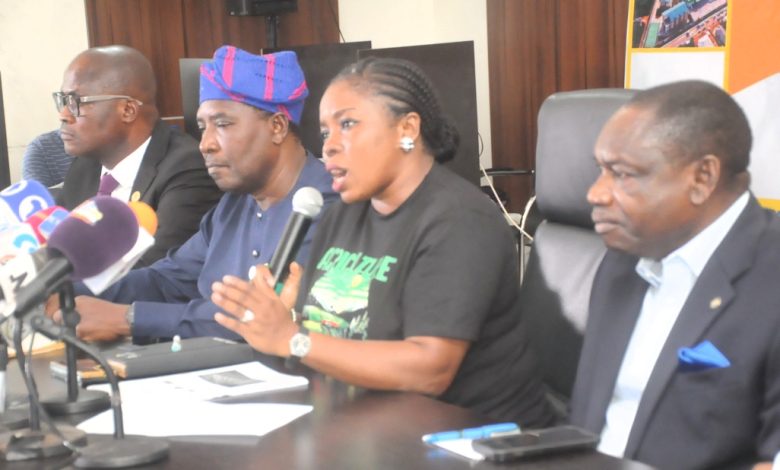
The agriculture sector in Lagos State has contributed N7trillion naira to the state’s economy in the past five years with the food market size valued at about N9billion in daily and N5trilion in annual transaction. The Commissioner for Agriculture and Cooperatives, Ms. Bisola Olusanya gave the figure at a news briefing in Alausa, Ikeja.
Ms Olusanya said the state had the potential for agriculture to contribute more to the economy, but it was hampered by various factors including people’s reluctance to invest in farming, activities of land racketeers, illegal conversion of farm lands into real estate, and dredging which had adverse effect on natural fish production.
The Commissioner, who said about ten thousand cows were slaughtered in the state every day, warned those operating illegal slaughter slabs to desist, while the government was working to develop the coconut value chain.
She said the ministry had many programmes including, “the development of a 5-year Agricultural and Food Systems Roadmap (2021-2025) as well as the Food Security Systems Policy Document; Collaboration with Private Sector players across food system, particularly as regards Red Meat Value Chain/Fisheries and Agro produce hub transformation.”
According to the Commissioner, other achievements of the ministry in the past year were the training of “51,676 Lagosians in agripreneurship skills, across all Departments/Agencies/Projects/ Value Chains of interest. Empowered 34,901 beneficiaries across all value chains. Establishment of Central Food Systems and Logistics Hub, Ketu Ereyun, Epe.”
Ms Olusanya revealed that the state would inaugurate 50 Meat Vans at Oko-Oba abattoir as well as launch the Lagos Last Mile Meat Shops to control and preserve the meat, thereby ensuring consumption of wholesome meats and bring the market closer to the people.
She said the unveiling of Lagos Last Mile Meat shops and utilisation of new Vans would ensure availability of meat for residents, create market access and curb illegality of the transportation of meat carcass across the state.
The Commissioner also added that the state in the last one year had launched various social interventions programmes such as trader monies for Market men and women, embarked on Agric business support initiatives, while building farms across the state.
She said “The government had over the last one year secured the Lagos food system, leaving no one behind through the Lagos Agric Scholars’ programme while supporting with extension services. We have also supported more than twenty three thousand, nine hundred and eighty six farmers thereby exceeding our target which included rice, fish and poultry farmers. And the state government has through its Coconut Value Chain Development, trained youths and with the Eko Agro mechanisation project the state had been able to procure tractors, mechanised farm implements for the beneficiaries.”
On rice production in the state, the Special Adviser to the Governor on Agriculture, Dr Rotimi Fashola said the state needed about two hundred thousand tonnes of rice paddy to keep the Imota Rice Mill working throughout the year.
Dr Fashola said environmental challenges, insecurity and higher demand for paddy were some of the problems affecting paddy production.
Discover more from Radio Nigeria Lagos
Subscribe to get the latest posts sent to your email.




